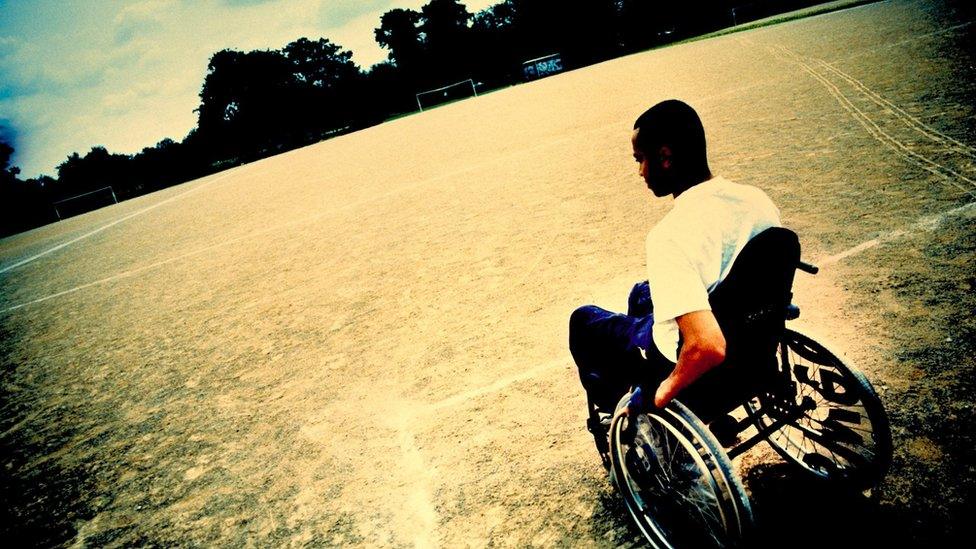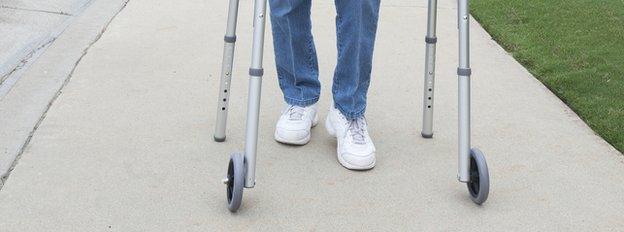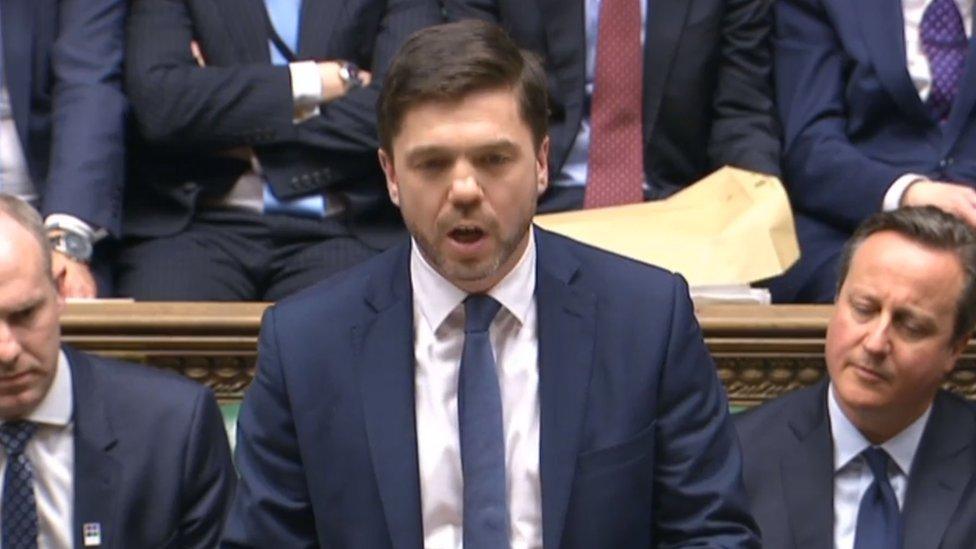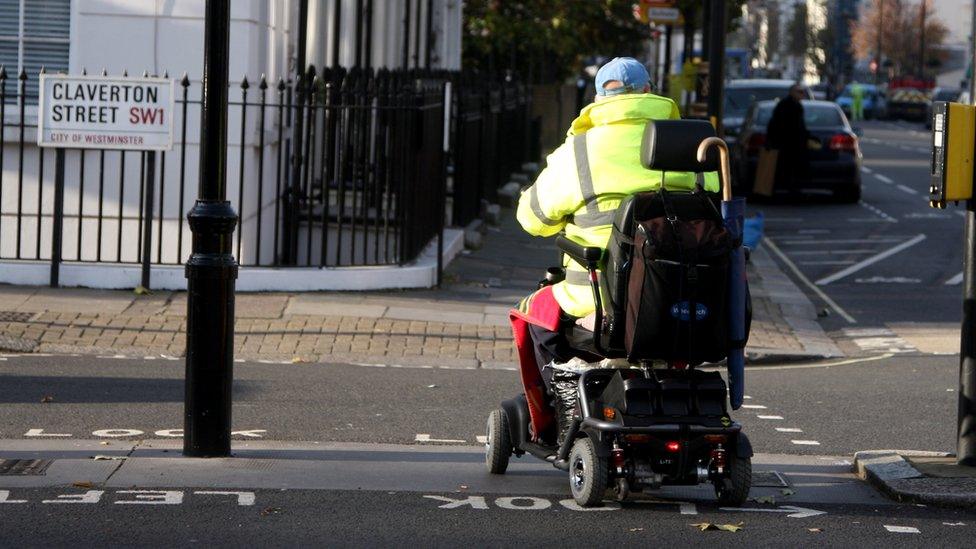Relief and fear over U-turn on disability benefits
- Published

With the hugely controversial cuts to the disability benefit Personal Independence Payments (PIPs) being scrapped, where does this leave disabled people now?
Relieved, I'd say, but fearful that this relief will be short-lived.
The U-turn was confirmed by the new Department for Work and Pensions (DWP) Secretary Stephen Crabb - his announcement in the Commons was met with cheers, cat calls and some confusion.
It comes following a week that's seen the Conservative party divided over its core principles. Former DWP secretary Iain Duncan Smith resigned on Friday, stating that the "deeply unfair" cuts he had been under pressure to make were dividing a nation.
If you're sick or disabled and reliant on disability benefits such as PIP, it's been quite a week.
What is the row around PIPs all about?
Days before the chancellor's budget, it was announced that the criteria that decide whether you're eligible for PIP and at what level, would be changed. This change was going to save the government £4.4bn.
As a result it was estimated that 370,000 disabled people would lose £3,500 a year, according to the Institute for Fiscal Studies.
Disability charities have been deeply concerned about the changes to PIP, warning that tightening the criteria would lead to more disabled people unable to financially cope with the extra costs that come hand-in-hand with having a disability.
That's always been the beauty of PIP - it's money that helps with the essentials that often come at a price. It gives disabled people similar chances to live and work as independently to those of the rest of society.


What is PIP?
New benefit that began replacing Disability Living Allowance (DLA) in April 2013
Made up of two parts - daily living component and mobility component
Designed to help cover the extra costs of having a disability
Claimants receive between £21.80 and £139.75 per week
Nearly 700,000 people currently claim PIP, with another 1.5m still to be reassessed.

Earlier on in the week I spoke to Sarah Stewart. She has a neurological condition that affects her memory and balance and as a consequence, Sarah has had to give up her job as a paid carer and is currently in receipt of the daily living component of PIP.
The changes to PIP would have had a direct impact on her as Sarah is due to be reassessed in January 2017.
As someone who uses aids and appliances to help score the points she needs to be eligible for PIP, the government's U-turn has come as a huge relief for her and her family.
"I'd turn cartwheels if I could. I can't, so I'll just turn cartwheels in my mind," she said.
"I hope this means the cuts are over. It's difficult enough being disabled without the worry and stress of cuts on top of that."

Stephen Crabb made a pledge in his first speech since becoming the new work and pensions secretary
"I hope this means the cuts are over" - that's something many disability charities and campaigners are hoping for too. But the sums are stark.
Cuts or no cuts, the government is still facing a black hole of £4.4bn in its budget. However, what Stephen Crabb was able to confirm - his department isn't paying for it. He confirmed that this substantial saving wouldn't be coming from the welfare budget.
"I am absolutely clear that we have a compassionate and fair welfare system, but behind every statistic is a human being and in government we can sometimes forget that."
He said his department would be having further conversations with disabled people, charities and campaigners.
Liz Sayce, chief executive of Disability Rights UK, welcomed the decision to reverse the cuts but added a note of caution.
"The clue is in the name - the benefit should be available to those who need help to live independently," she said. "We also welcome the statement that there are no plans to introduce further welfare cuts during this parliament. We hope that the £4bn in savings that the chancellor has identified does not come from disabled people."
However, for many, the changes to PIP are the tip of the iceberg. They follow a raft of reforms that have affected disabled people.
Dan Scorer, from the disability charity Mencap, said the decision was "long overdue recognition" by the government that disabled people and their families have already endured massive cuts to benefits and care services.
"However, many people with a learning disability in future stand to lose £1,500 a year from cuts to Employment and Support Allowance and Universal Credit that the government forced through Parliament earlier this month," he said.
"This is on top of £4.6bn worth of funding cuts to social care in the past five years, which has reduced disabled people's access to vital support, pushing them to the fringes of society."
Disability benefits have been firmly placed in the spotlight.
Campaigners, charities and disabled people themselves are now hoping that this will be the start of that "conversation" the new work and pensions secretary has promised.
Additional reporting by Ruth Clegg, disability news producer.
- Published21 March 2016

- Published17 March 2016